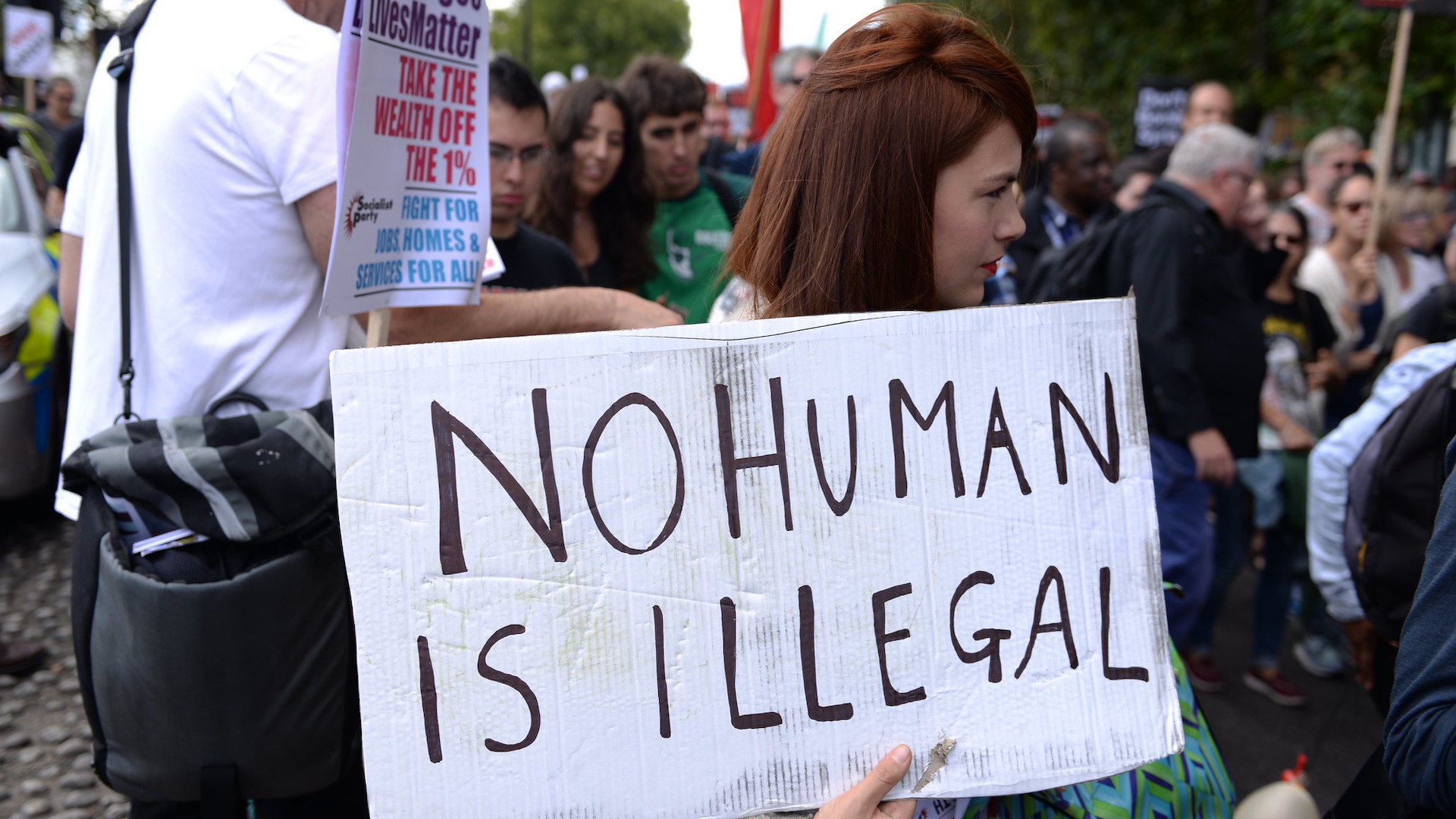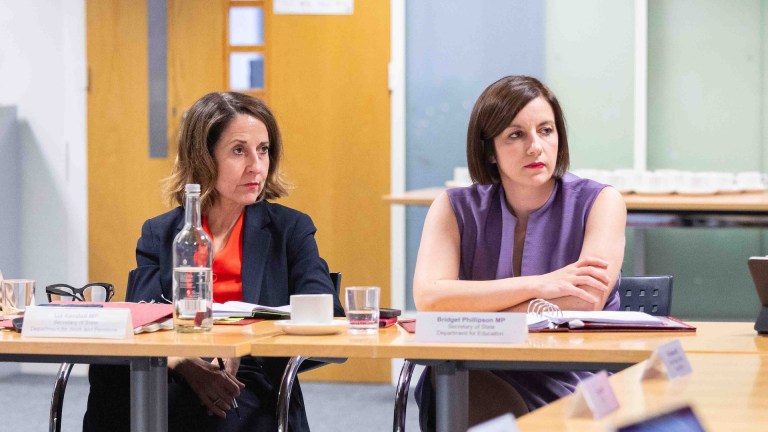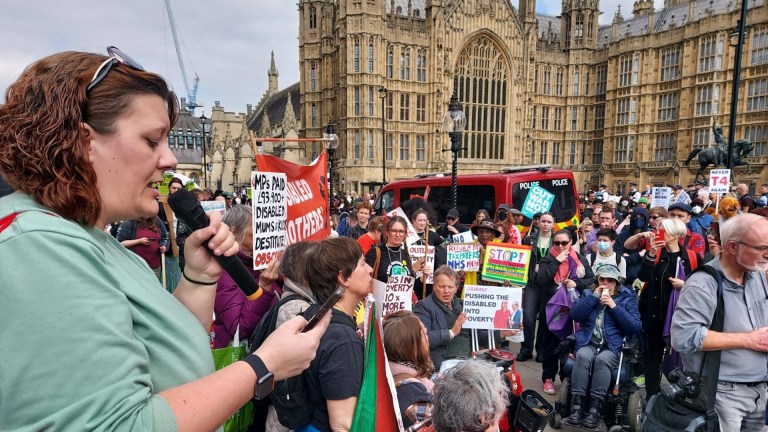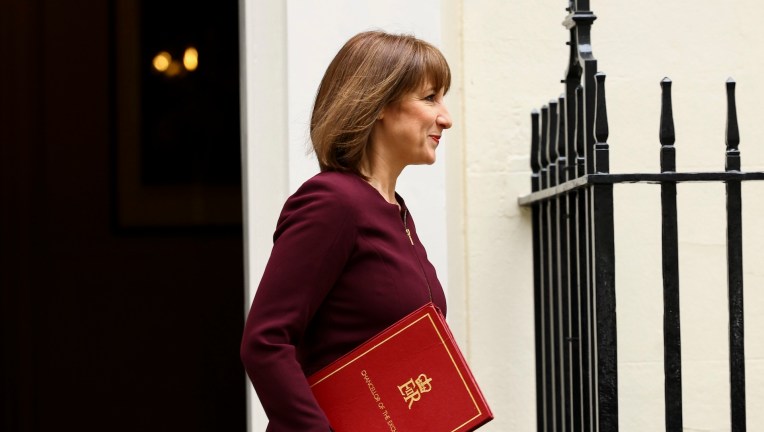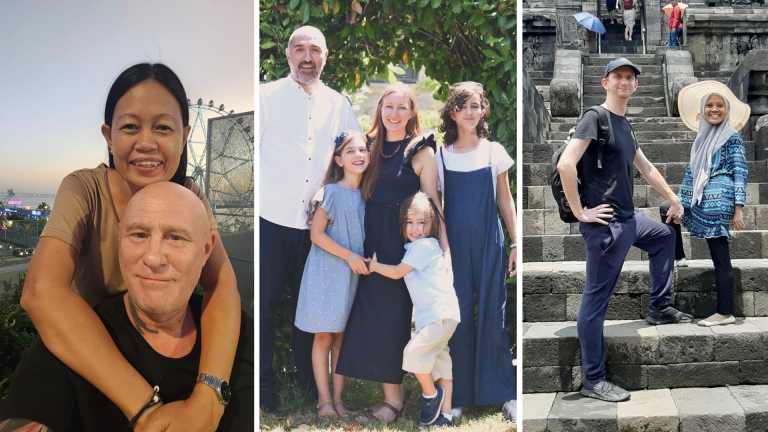For the first time, people could have their claim for asylum assessed based on how they arrived here, or could be detained offshore – away from mainland Britain – until their claim is approved. Those who arrive “irregularly”, such as without a valid visa, could be imprisoned for up to four years.
The proposals could see people assigned fewer rights or denied asylum in the UK entirely because they arrived here by a route or mode of transport the government classes as illegal, such as by dinghy across the channel. Around 6,000 people crossed the English Channel in small boats in the first half of this year. It also puts refugees already settled in the UK at risk, depending on how they arrived.
“We need people to think again before attempting these life-threatening crossings,” said Conservative MP Damian Collins. “Thats why it’s right this bill addresses that.”
Collins backed moves to increase the maximum sentence for people arriving in the UK illegally from six months to four years and to “close down illegal crossing points”.
Labour will oppose the bill in the Commons vote. Speaking ahead of the debate, Thomas-Symonds said the legislation “risks breaking international law and turns our backs on unaccompanied children fleeing war and persecution”.
Advertising helps fund Big Issue’s mission to end poverty
The proposals “unacceptably remove important protections for victims of modern slavery and human trafficking”, Thomas-Symonds added.
“Some measures are fatally flawed even on their own terms, as they rely on international agreements that have not been agreed and there seems to be no prospect of delivering,” he said, referring to the home secretary’s plans to remove asylum seekers from the UK to other countries which will accept them.
“The cruel irony of this government’s approach is that it’s weak on taking action against criminal gangs – and brutal when it comes to orphaned children from war zones.”
Patel also wants to increase the maximum prison sentence which could be handed out to people for entering the UK illegally.
“We have orphaned children sleeping rough on our border with France and in overcrowded camps,” said Labour and Co-op MP Stella Creasy during the debate. “And we say, they must be safe, so they’re not our problem.”
The Borders Bill “makes plain the government’s disdain for those who found themselves with little alternative but to run for their lives,” she added. “Turkey is taking four million refugees and we’re quibbling about 26,000 applications.
Advertising helps fund Big Issue’s mission to end poverty
“We all want to stop the traffickers but the gangs will use changes like this as a selling point to those desperate people. You want to stop the gangs, take away the market. But there is no safe and legal route being proposed here, no new commitments made.”
Ministers could be breaking Article 31 of the 1951 Refugee Convention, which states governments “shall not impose penalties” on refugees and asylum seekers on account of their illegal entry or presence in the country as long as they have good cause to be here, and don’t delay presenting themselves to authorities.
The home secretary said the proposals are in line with the Refugee Convention and the European Human Rights Convention. But the Borders Bill will “add to the backlog of asylum claims and leave many in limbo, while doing nothing to address the culture of disbelief that results in poor-quality decision-making,” the Join Council for the Welfare of Immigrants warned.
Steven Bonnar, a SNP MP, told Commons: “The UK needs only to look at Australia’s experience to learn that overseas processing centres for asylum seekers cause incredible psychological damage. They are eye-wateringly expensive and they do nothing to deter asylum seekers.”
After the Borders Bill’s second reading and subsequent vote, it is the Public Bill Committee will hear evidence in September followed by further scrutiny in October. It will return to the House of Commons for its third and final reading shortly after before moving to the House of Lords before the end of the year.
Advertising helps fund Big Issue’s mission to end poverty
